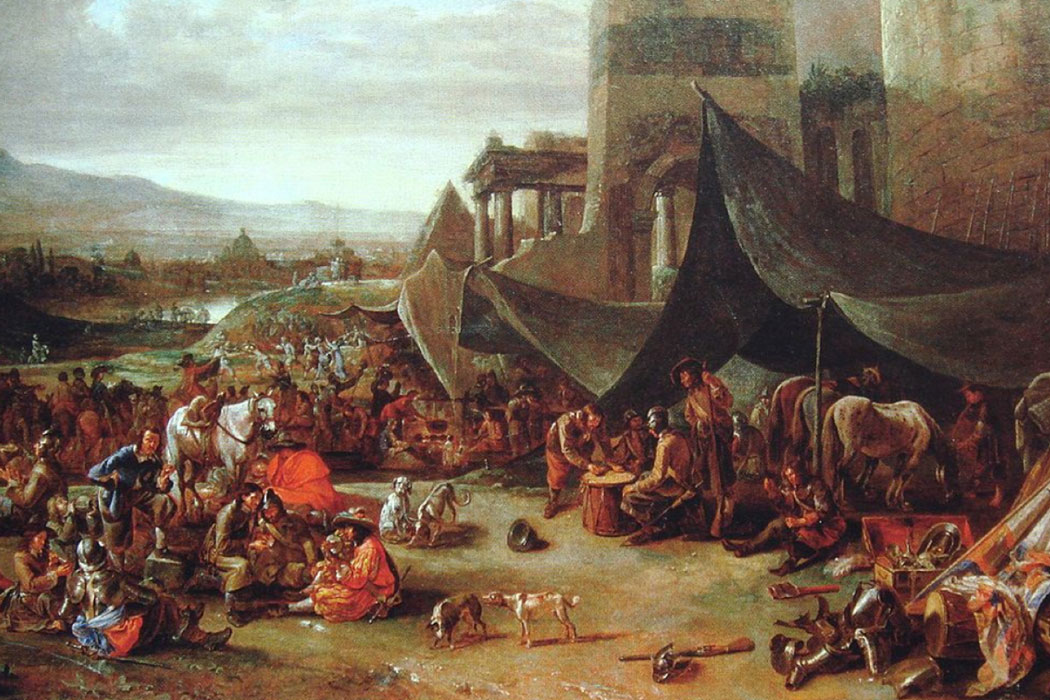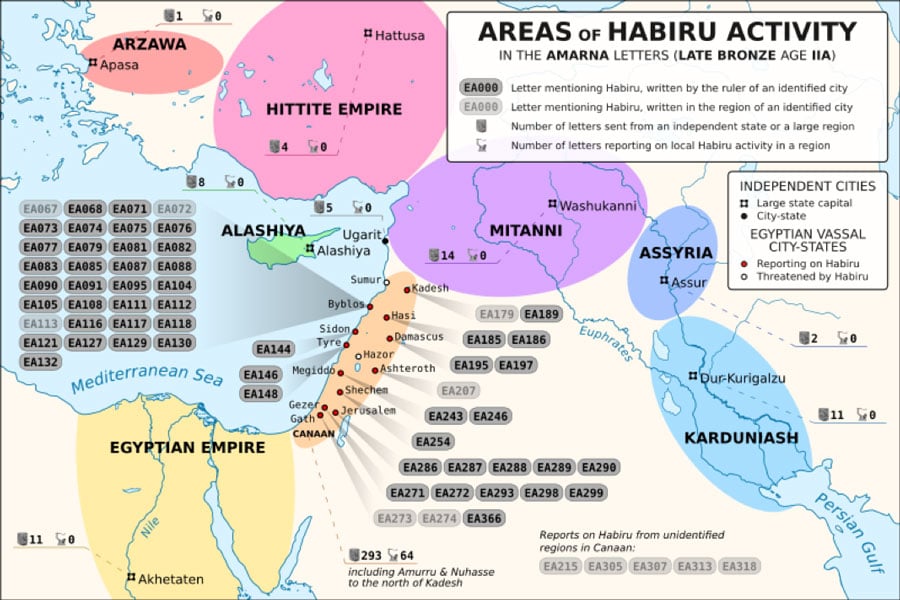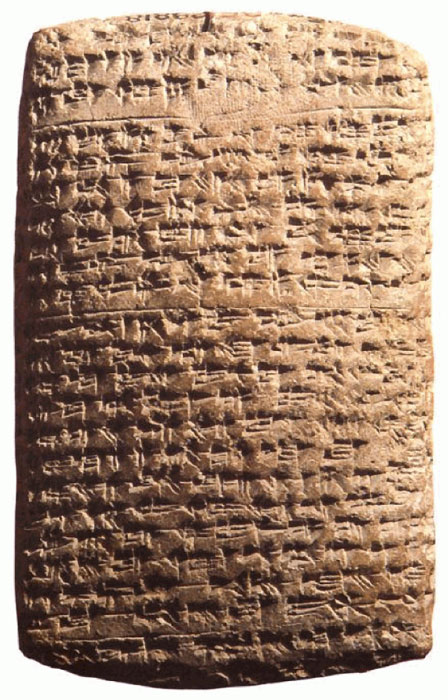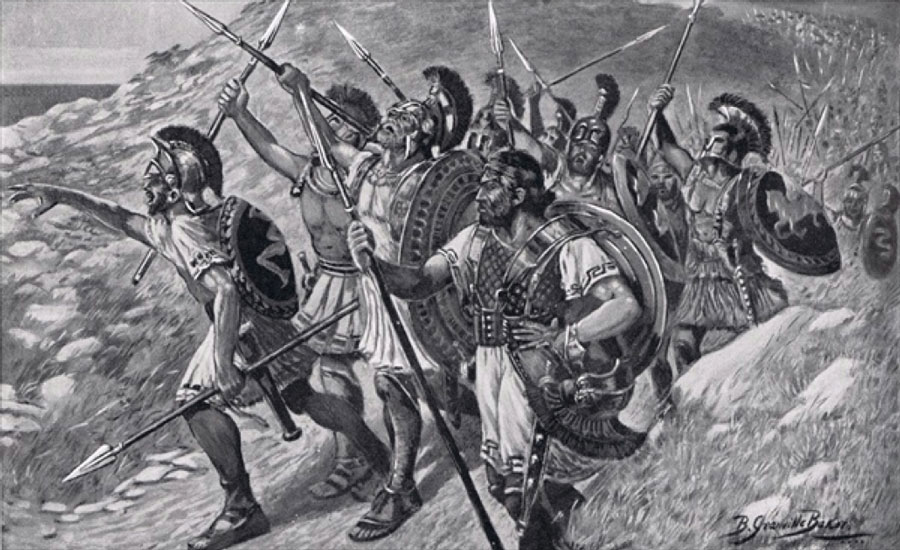
Soldiers for Sale: Mercenaries from Ancient Times to Medieval Times
Mercenaries are soldiers who are paid for their martial services from the pocket of their employer and from the spoils obtained in war. Most mercenaries once fought in professional armies before joining the motley ranks of private forces for hire. They have no allegiance to a nation unless that nation pays well and even that may be a temporary arrangement. Even though the terms of service are momentary, their unique skills allow nations the opportunity to procure from the soldiers of fortune what they already have, but may not have access to due to national issues at hand, such as overextending one’s troops and resources because of foreign wars or perhaps domestic issues have deterred the nation’s ability to function properly.

Areas of Habiru (Hapiru, Khabiri, Apiru) activity as reported in the Amarna letters corpus (CC BY-SA 3.0)
The Apiru / Habiru: Wandering Outcasts
When the Amarna Letters were discovered, the world was introduced to a group of people whom the Egyptians called Apiru or, in Akkadian, Habiru. The Habiru were described as a group of Asians wandering about the Levant, much like the Hebrews. The Sumerians were the first to mention this group as the SA.GAZ as far back as 2500 BC. Hittite texts also refer to them as SA.GAZ.

The Amarna Letters: EA 161 (front), Aziru of Amurru to the Pharaoh. (Public Domain)
Texts found at Boghazkoi in Anatolia use both names, Habiru and SA.GAZ, interchangeably. The term is also associated with the Akkadian habbatu (‘plunderer’ or ‘robber’) or saggasu (‘murderer’). At Mari, the Habiru were present, particularly employed as soldiers and were not referred to as SA.GAZ. The SA.GAZ were not described as pastoral people. Instead, SA.GAZ means ‘one who smashes sinews’, this is typically in reference to a small band of soldiers who are employed as local mercenaries.
The Ten Thousand Greeks
The ‘Mighty’ Ten Thousand! The Ten Thousand are mentioned in Xenophon’s Anabasis. The Ten Thousand according to Xenophon were a mixed bag of Greek warriors hired by Cyrus the Younger to help oust his brother King Artaxerxes II from the Persian throne. In 401 BC, the hardened Greek veterans of the Peloponnesian War fought alongside Cyrus near Baghdad against the Persian forces led by Artaxerxes. While the Ten Thousand fought bravely, it was not enough; Cyrus was killed in the battle. Afterwards, Tissaphernes, a local satrap (governor) and the Greek commanders met to negotiate new terms, but Tissaphernes refused their services and the Greek commanders were murdered. Once word reached the troops of the murders, the Greek soldiers elected new leaders and fled.

Thalatta! Thalatta! (The Sea! The Sea!) Heroic march of the Ten Thousand Greek mercenaries. by Bernard Granville Baker (1901) (Public Domain)




